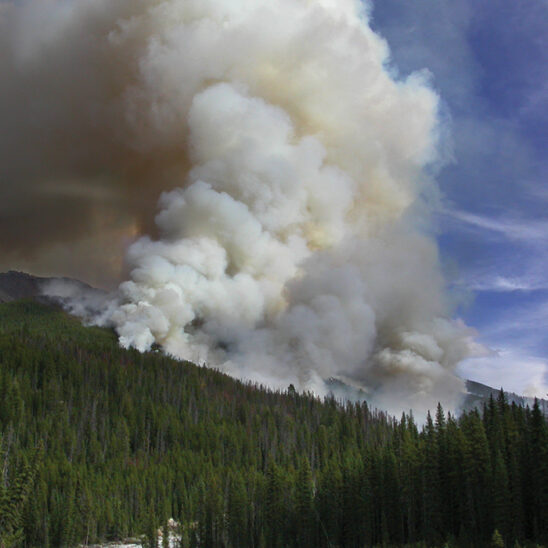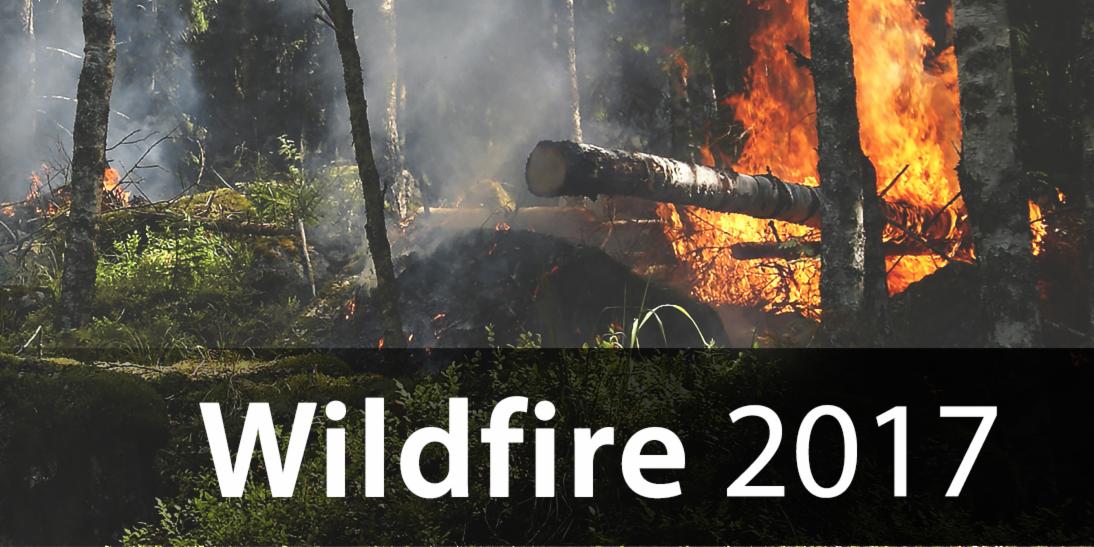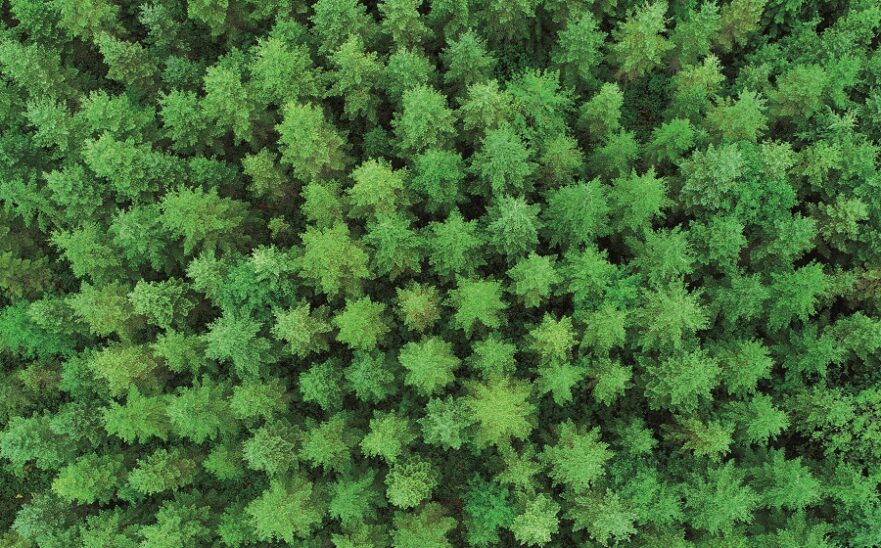The term “new normal” is taking on yet another new meaning for us in British Columbia. Wildfires defined 2017 and 2018, when intense, fast-moving and uncontrollable fires burned a record-breaking 2.5 million hectares of grasslands and forests. Those fires emitted two and three times the normal annual carbon dioxide emissions for our entire province and generated smoke that made air quality in western Canada the most hazardous in the world for many days. With the 2020 wildfire season upon us, the long-range forecast for this summer indicates well above average potential for fire in BC.
This year, COVID-19, which primarily infects the respiratory tract, has redefined our daily lives. Experts at UBC’s School of Public Health and BC (BCCDC) Centre for Disease Control tell us COVID-19 infections are exacerbated by wildfire smoke, which weakens our natural defenses. People at high risk of the effects of COVID-19 overlap with those who are most vulnerable to the impacts of wildfire smoke, the elderly and people with chronic heart or lung disease, asthma, or diabetes. Deterioration in air quality may lead to more numerous or severe COVID-19 infections, while improvements to air quality may provide protection from the potentially severe effects of the virus.
Now, it is more important than ever to take proactive measures to reduce smoke and wildfire impacts. Several actions are already underway. Starting mid-April, the BC Ministry of Environment and Climate Change Strategy, BC Wildfire Service, Metro Vancouver, and provincial public health authorities worked together to implement burning restrictions to reduce exposure to harmful smoke including the temporary suspension of prescribed burns.
Minimizing accidental wildfire ignitions is critical. So far, there have been 139 fires in BC, 83% of which were caused by people. On average, 40% of wildfires in BC are human-caused and preventable. This year, extra care is needed. Outdoor enthusiasts need to ensure campfires are extinguished properly and be vigilant when using all-terrain vehicles in the back country. We can anticipate precautionary fire bans and restrictions during hot, dry weather.

Health experts from the BC Centre for Disease Control recommend we prepare for wildfire smoke in advance. Reducing exposure means limiting smoke particles in your home. Closing doors and windows is a good first step, but can contribute to heat stress if you do not have air conditioning. Portable air purifiers very effectively remove small particles from indoor air, as do filters and special settings on forced air units.
Becoming FireSmart is another way we can prepare for the fire season – especially since many of us live in fire-prone communities. Both FireSmart BC and FireSmart Canada provide excellent resources and suggestions for proactive ways to prepare you home and property. FireSmart Canada recommends reviewing safety gear and tips before your start. The following actions are among my favourites:
- Use the FireSmart Begins at Home App to assess your home
- Clear leaves, pine needles, and combustible debris from your roof, gutters, porch, and deck. Dispose of debris
- Rake and remove pine needles, dry leaves, and combustible debris within 1.5 metres of your home. Expand up to 10 metres if you can. Dispose of debris
- If your woodpile is closer than 10 metres, relocated it away from your home
- On mature trees, prune branches within two metres from the ground. Dispose of debris
- Ensure all screened vents have mesh that is a maximum of 3mm to resist an ember storm
- Develop a wildfire evacuation plan for your home and family
- Help an elderly neighbour do FireSmart work to their home
For more information, contact:
Lori Daniels
Professor at the Department of Forest and Conservation Sciences
lori.daniels@ubc.ca


